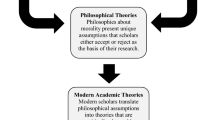Abstract
Recently, Amartya Sen and Martha Nussbaum have developed the capabilities approach to provide a model for understanding the effectiveness of programs to help the developing nations. The approach holds that human beings are fundamentally free and have a sense of human dignity. Therefore, institutions need to help people enhance this dignity by providing them with␣the opportunity to develop their capabilities freely. I␣argue that this approach may help support business ethics based on virtue. Since teleology has become problematic, virtue ethics has had difficulty giving itself an ultimate justification. By combining virtue ethics with the capabilities approach, it becomes possible to ground virtue ethics on the basis of the existence of human dignity. This frees virtue ethics of the need for a strict teleology, replacing it with the notion that people must work to develop the capabilities of others although those capabilities are not pointed toward a definite goal. I further suggest that by grounding virtue ethics in capabilities, the actions of a virtuous manager become clearer. Rather than simply charging a manager with serving the public, the manager is charged with serving the stakeholders in a way that develops their capabilities. For example, a manager should not just give their employees what is just but must give them the environment and the encouragement to grow and to find fulfillment in their job.
Similar content being viewed by others
References
Aristotle: 1984, Aristotle’s Nicomachean Ethics, trans. Hippocrates G. Apostle (Peripatetic Press, Grinell)
Arjoon S.: 2000, Virtue Theory as a Dynamic Theory of Business. Journal of Business Ethics 28, 159–178
Bowie N., Werhane P. 2005, Management Ethics. Oxford: Blackwell
Lencioni P. 2002, The Five Dysfunctions of a Team. New York: John Wiley and Sons
Machan, Tibor R.: 2004, ‹Aristotle and the Moral Status of Business’, Journal of Value Inquiry 38, 217–223
Nussbaum M. 2000, Women and Human Development: The Capabilities Approach. Cambridge: Cambridge University Press
Sen A. 1999, Development as Freedom. New York: Random House
Solomon R. 1992, Ethics and Excellence: Cooperation and Integrity in Business. Oxford: Oxford University Press
Stack J., Burlingham, B. 1992, The Great Game of Business. New York: Doubleday
Van Hooft S. 2001, Overcoming Principles: Dialogue in Business Ethics. Teaching Business Ethics 5, 89–106
Whetstone J. T. 2001, How Virtue Fits Within Business Ethics. Journal of Business Ethics 33, 101–114
Author information
Authors and Affiliations
Corresponding author
Rights and permissions
About this article
Cite this article
Bertland, A. Virtue Ethics in Business and the Capabilities Approach. J Bus Ethics 84 (Suppl 1), 25–32 (2009). https://doi.org/10.1007/s10551-008-9686-3
Published:
Issue Date:
DOI: https://doi.org/10.1007/s10551-008-9686-3




